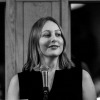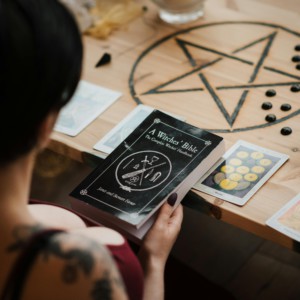This Modern Love
Punk quilting and Petrarch; get romantic this February, as we explore the latest innovations in love poetry.
* This course will take place on the video-conferencing platform ZOOM *
This course aims to stimulate the creation of contemporary love poems, using both traditional and newer poetic forms. Investigating a range of exemplary love poems – from Petrarch, Spenser, Sidney and Shakespeare to Pablo Neruda, Edna St. Vincent Millay, W.B. Yeats, Eavan Boland, Richie McCaffery, Jericho Brown, Sharon Olds, Jo Bell and Ilya Kaminsky – we will consider how we might harness the strengths of these forms as we create poems that express our experiences of love and relationships.
An artwork by Gemma Compton serves as a useful analogy to many of the aims of this course – in an Instagram clip, Gemma cuts quilting squares from vintage Liberty print fabric, backs the squares, then sews on felt letters, in blackletter typeface, spelling ‘Bad Bitches’. Using a fabric associated with luxury and a script with ancient origins, she creates an affirmation that includes slang and a swearword, neatly hemmed. The fabric, the script: we hear, see, feel the clash of everything conventionally associated with them as she turns them to her purpose. The squares will later be added to a magnificent quilt. This is a piece of contemporary art that also has a practical function. It can keep you warm.
In using traditional poetic forms, contemporary poets recall the traditions associated with these forms while simultaneously defying expectation and convention, as they depict experiences not previously associated with them. In our experimentation with traditional techniques and forms, we will find both fruitful constraint and freedom. We will experience what happens to our writing when we keep to strict parameters such as using fixed rhyme schemes, set syllable counts, and meter. We will exploit the continuing power of features such as the volta and heroic couplet.
We will enjoy trying out newer poetic forms, including the golden shovel, invented by Terrance Hayes, the specular poem, invented by Julia Copus and the duplex, invented by Jericho Brown. In the supportive atmosphere of the group, we will develop our skills and build our confidence as editors of our own work and that of others.
4 fortnightly Zoom sessions on Saturdays, 10am – 12pm (GMT), starts 14 Feb 2026.
Concessions & Accessibility
To apply for a concession rate, please send relevant documentation showing your eligibility for one of our concessions to [email protected]. Conditions of eligibility are detailed here. If you have any questions or wish to be added to the waiting list of a sold-out course, please email [email protected].
What to Expect
Please check the left hand side of this page for information on how this course works in practice, under the heading ‘Course Style‘. If you’re unsure as to what any of the terms there mean, or if this course is a good fit for you, then please take a look at our What to Expect page which includes some further information on how our courses function.
Image Credit: Turgay Koca
About Elizabeth Parker  View Profile
View Profile
Elizabeth Parker was born in London and grew up in Pygmy Pinetum Garden Nurseries, a garden centre in The Forest of Dean. She lives in Bristol with her partner and two sons. She was a secondary school English teacher for eight years and is writing two novels based on her experiences teaching Shakespeare to teenagers.
Elizabeth’s first full collection, In Her Shambles, was published by Seren Books in April 2018 and her second collection, Cormorant, was published by Seren this February. She is a founding member of Bristol poetry quartet The Spoke, who perform their work at festivals and events. She is also co-host of monthly Bristol poetry event Under The Red Guitar.
Elizabeth is currently experimenting with poetic forms as she works on a long poem about her wonderful father, who has late-stage dementia, and a collection about the life and sudden loss of her sister, the playwright and glorious human being Helen K Parker. Her cormorants continue, as she has just begun to draft a poem titled ‘Helen As Cormorant’.
"It is always good to attend Poetry School courses as there is usually always new things to learn. It also it opens new doors for themes."
 Delusions of Grandma: Rewriting the Family Narrative
Delusions of Grandma: Rewriting the Family Narrative Poetry as Spellcasting
Poetry as Spellcasting The Poetry of Mindfulness, Dreams, & Reflections
The Poetry of Mindfulness, Dreams, & Reflections